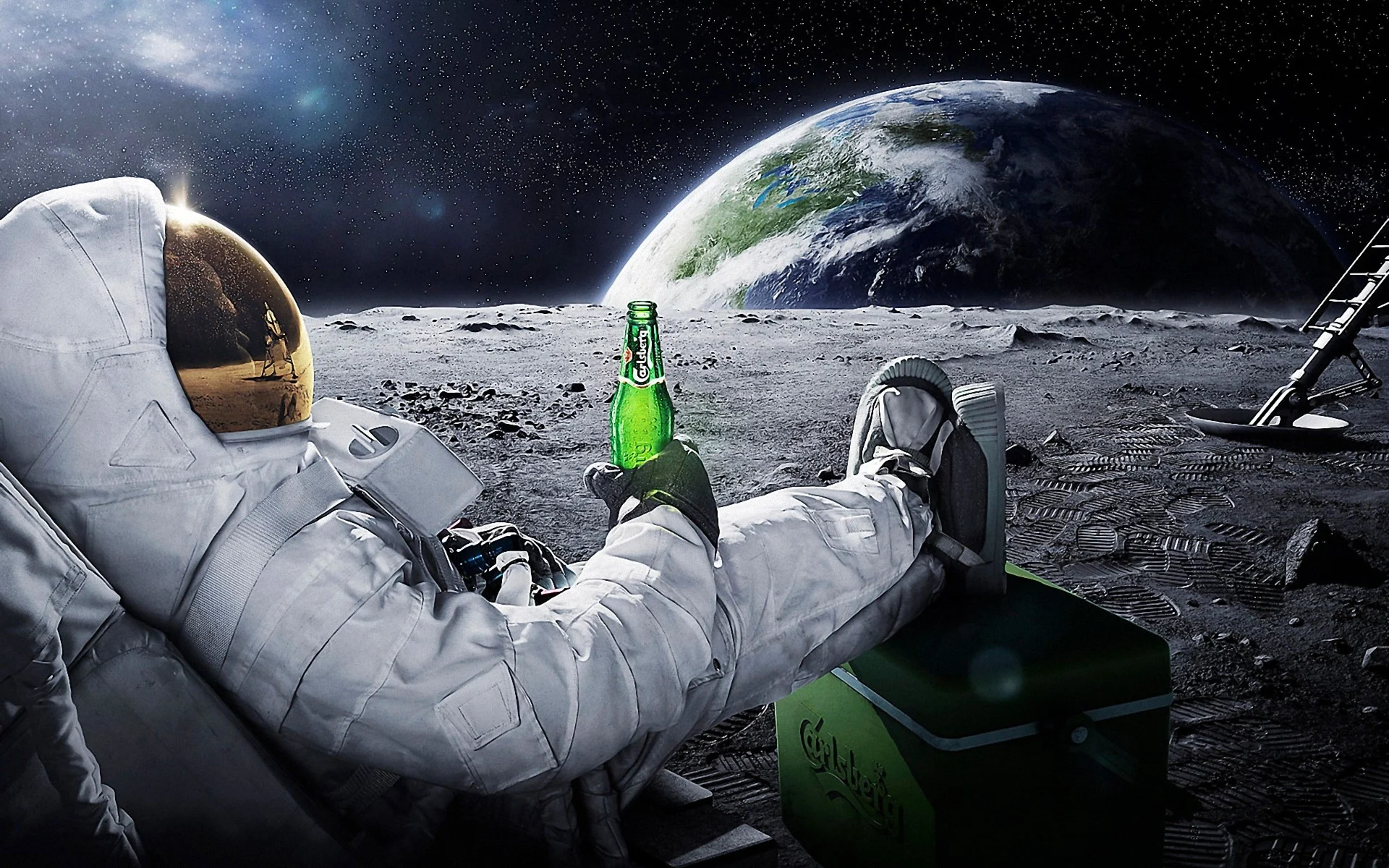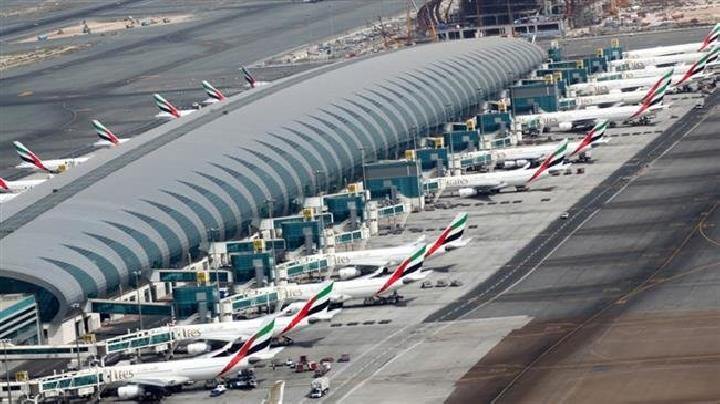Unleash the wonder of the endless possibilities and unlock the destiny of exploration that goes beyond our very planet. Space tourism, once mere fantasy, has become a accessible reality. With new breakthroughs in technology and a growing curiosity about what else is out there, companies like SpaceX and Blue Origin are here to give us a brand new kind of fun and adventure.
Just imagine the sensation of floating in a weightless state, looking out of the window at a massive space. LA disservice you off of experiencing the marvel of planet Earth in real life. This is the newfound concept of space tourism , a possibility to leave your mark on an expedition that has significant implications on understanding.
The History of Space Tourism
Contents
- 1 The History of Space Tourism
- 2 The Potential of Space Tourism
- 3 Benefits of Space Tourism
- 4 Challenges and Risks of Space Tourism
- 5 Key Players in the Space Tourism Industry
- 6 The Future of Space Tourism
- 7 Space Tourism Experiences and Packages
- 8 The Economic Impact of Space Tourism
- 9 The Future of Travel Beyond Earth
Space tourism is sometimes perceived as a recent modern practice, but it actually have already existed since the end of the 20 th century. The first space tourist was billionaire Dennis Tito who made a tour to the International Space Station aboard the spaceship of Russian Aerospace Agency in 2001. This event was a huge breakthrough since the beginning of the new era of human space exploration. After that first tour, such pioneers as Mark Shuttleworth, Guy Laliberté, and Anousheh Ansari have also traveled in space.
Thus, space tourists have transformed from a simple event to a space industry. Additionally to attracting people’s attention to space tourism, space tourists also become contributors to the funding scientific discoveries.

The Potential of Space Tourism
Thus, space tourism is not only a domain of adventure and discovery but opens up many other possibilities. It may become a tool that would inspire a new generation of scientists, engineers, and astronauts, simply because it would make space more accessible to people. The feeling of weightlessness, the sight of the Earth from the outside, and the ability to observe cosmic events firsthand – all of these factors may be sufficient to reveal the hitherto unknown interest and passion towards space science and exploration.
Finally, it may also become the first step and stepping stone for even more daring activities such as the colonization of other planets. In sum, spawning the required infrastructure and technologies to stimulate space tourism would be a cornerstone of the undertaking aiming to make humanity a multi-planetary species.
Benefits of Space Tourism
On top of that, space tourism presents an even more versatile arsenal of benefits. Evidently, from an economic perspective, it will aid in the development of a new industry with its set of taxes and fees. Furthermore, the sales of tickets are not the only way space tourism can generate income. Spaceports, orbital hotels, transport, and other facilities, businesses are going to emerge, soldiering millions of people in diverse roles. Moreover, tourism renews its potential for diplomatic relations. Bilateral cooperation in making space travels possible will open up the opportunity for broader relationships.
On a more personalized level, space tourism is a way to change the world’s perception from above. The decrypted Earth and other planets present objects of universe-wide, controversial disagreements that personify unity and separateness, merely existing and working. Thus, the general feeling is intertwined with the aspiration to introspect and resent all lies all the optimism and horror that they witness.
Challenges and Risks of Space Tourism
While the prospects of space tourism are exciting, there are significant challenges and risks that must be addressed. The safety of space travel is of paramount importance, with potential risks including space debris, radiation exposure, and the physiological effects of zero gravity on the human body. Extensive research and technological advancements are necessary to mitigate these risks and ensure the well-being of space tourists.
Another challenge lies in the affordability of space travel. Currently, the cost of a space tourism experience is prohibitively high for the average person. However, as the industry evolves and becomes more established, it is expected that costs will decrease, making space travel accessible to a wider audience.
Furthermore, the environmental impact of space tourism must be carefully considered. The carbon footprint of space launches and the potential for space debris accumulation in Earth’s orbit are concerns that need to be addressed through sustainable practices and regulations.
Key Players in the Space Tourism Industry
The rapidly growing space tourism industry has attracted the attention of both established players and new entrants. Companies like SpaceX, founded by Elon Musk, and Blue Origin, led by Jeff Bezos, have emerged as frontrunners in the race to make space tourism a reality. These companies have made significant progress in developing reusable rockets and spacecraft, which can significantly reduce the cost of space travel.
Other players in the industry include Virgin Galactic, which aims to offer suborbital spaceflights, and Boeing’s Space Tourism division, which plans to provide commercial space travel opportunities. These companies are investing heavily in research and development to bring their space tourism visions to life.
The Future of Space Tourism
The future of space tourism is brimming with possibilities. As technology continues to advance, we can expect more frequent and affordable space travel options. From luxury orbital hotels to lunar excursions, the range of experiences available to space tourists will continue to expand.
With ongoing efforts to establish a sustainable presence on the Moon and plans for crewed missions to Mars, the prospect of interplanetary tourism is not far-fetched. In the coming decades, we may witness the first tourists setting foot on distant celestial bodies, fulfilling humanity’s age-old dream of venturing beyond Earth.

Space Tourism Experiences and Packages
As the space tourism industry evolves, a variety of experiences and packages are being developed to cater to different interests and budgets. For those seeking a taste of space travel without leaving Earth’s atmosphere, suborbital flights offer a brief but exhilarating experience of weightlessness and a breathtaking view of the planet.
For a more immersive experience, orbital flights provide the opportunity to spend several days aboard a spacecraft, orbiting the Earth and witnessing multiple sunrises and sunsets. These experiences often include scientific experiments, spacewalk simulations, and the chance to interact with astronauts on the ISS.
Looking further ahead, lunar excursions and stays on orbital hotels are being envisioned, offering unprecedented opportunities to explore the Moon and gaze at Earth from a different celestial vantage point. These experiences will undoubtedly come with a hefty price tag but will provide an unparalleled adventure for those willing to embark on latoto.
The Economic Impact of Space Tourism
Space tourism has the potential to revolutionize not only the way we travel but also the global economy. As the industry expands, it will create a multitude of job opportunities in various sectors, including aerospace engineering, hospitality, and tourism. The development of spaceports and related infrastructure will spur economic growth in regions that become hubs for space tourism activities.
Furthermore, the influx of space tourists will drive demand for goods and services, ranging from accommodations and transportation to entertainment and souvenirs. Local businesses in space tourism destinations will flourish, contributing to the overall prosperity of the communities they serve.
The economic impact of space tourism extends beyond Earth’s atmosphere. As humanity ventures further into space, the need for resources and infrastructure in space will grow. This will create opportunities for industries related to space mining, manufacturing, and research, ultimately leading to the development of self-sustaining space economies.
The Future of Travel Beyond Earth
Space tourism represents a paradigm shift in the way we perceive travel. It offers the chance to transcend the boundaries of our planet, explore the wonders of the cosmos, and gain a deeper understanding of our place in the universe.
While there are challenges to overcome and risks to mitigate, the potential benefits of space tourism are immense. From inspiring the next generation of explorers to fostering international collaboration, space tourism has the power to reshape our world in ways we have yet to fully comprehend.
As the space tourism industry continues to evolve and mature, we can anticipate a future where space travel becomes increasingly accessible and affordable. The dream of venturing beyond Earth will no longer be limited to a select few but will become a reality for anyone with the curiosity and determination to explore the final frontier.
Prepare yourself for a future where the boundaries of travel are limitless, and the wonders of space beckon us to embark on the most extraordinary adventures imaginable. The era of space tourism is upon us, and it promises to redefine our understanding of travel and our place in the universe.
Also read: ASUKA-FUJIWARA: DISCOVER ABSOLUTE HISTORICAL WONDERS





